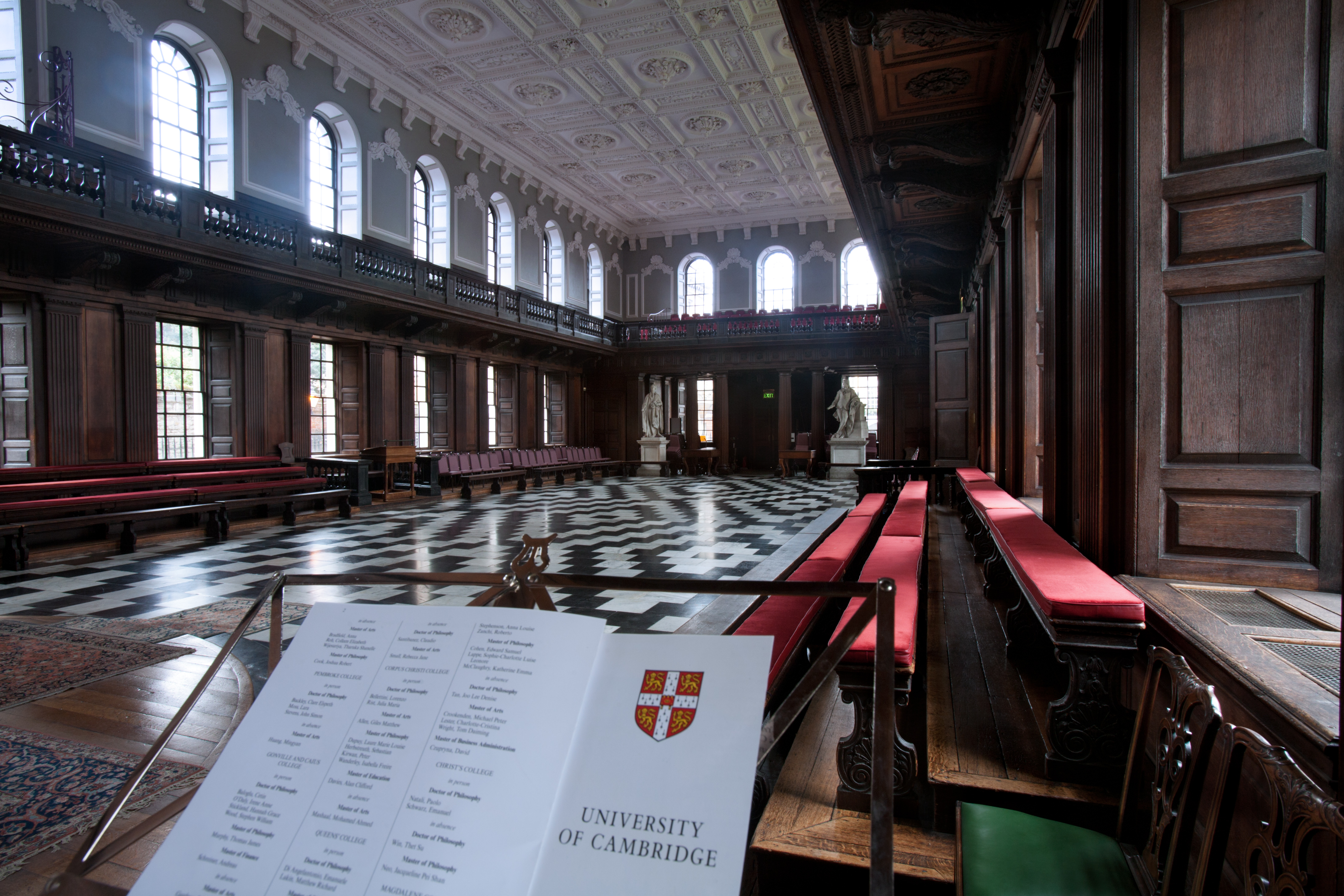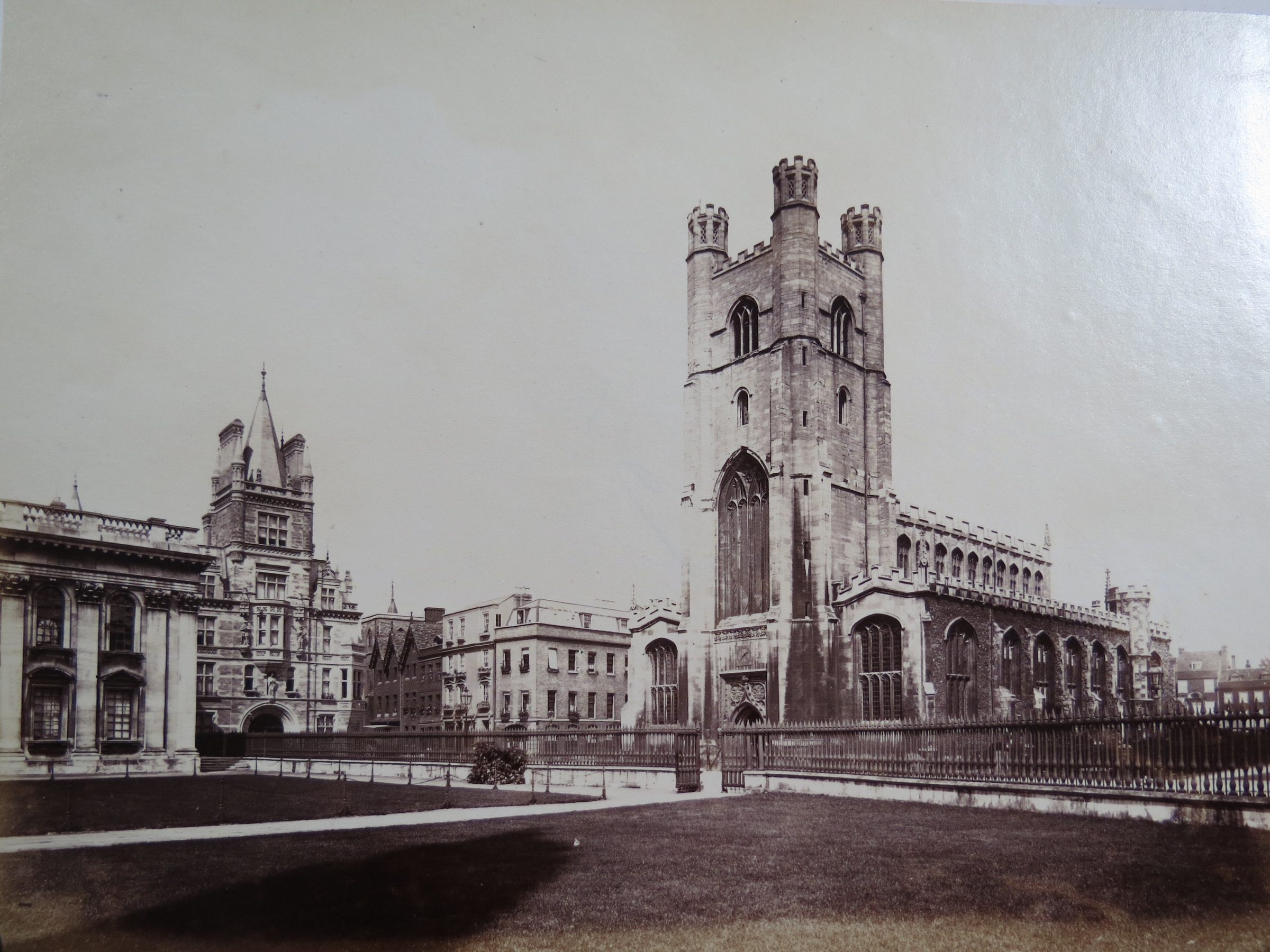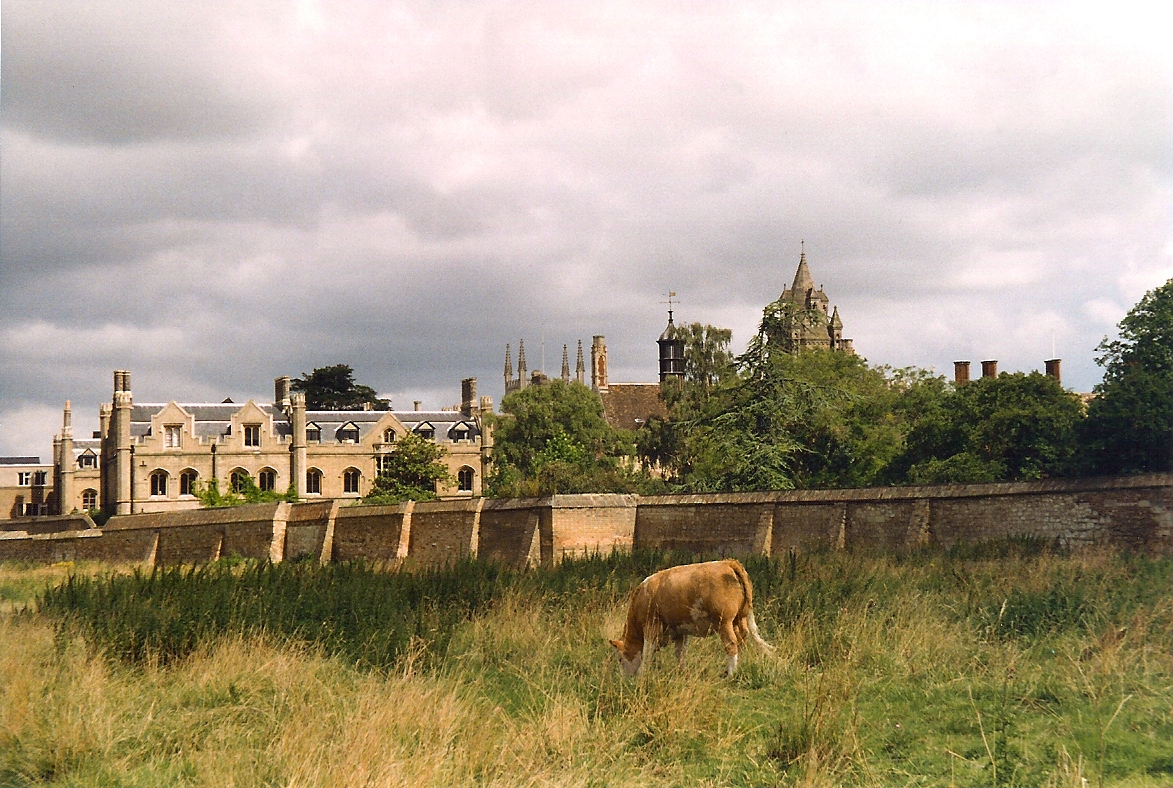|
Senate House, Cambridge
The Senate House is a 1720s building of the University of Cambridge in England, used formerly for meetings of its senate and now mainly for graduation ceremonies. Location and construction The building, which is situated in the centre of the city between King's and Gonville and Caius Colleges, was designed by architect James Gibbs, based to an unclear extent on designs by the gentleman-architect Sir James Burrough, and built in 1722–1730 by Gibbs in a neo-classical style using Portland stone. The ceremony to lay the first stone was performed by Thomas Crosse, then Vice-Chancellor, on 22 June 1722.Cooper, Charles Henry (1866) "Memorials of Cambridge (Volume 3)", Cambridge: Wm Metcalfe. The site was previously used for houses, which were purchased by an Act of Parliament, dated 11 June 1720. It was officially opened in July 1730, although the western end was not completed until 1768. The Senate House was originally intended to be one side of a quadrangle, however the rest ... [...More Info...] [...Related Items...] OR: [Wikipedia] [Google] [Baidu] |
Great St Mary's
St Mary the Great is a Church of England parish and university church at the north end of King's Parade in central Cambridge, England. It is known locally as Great St Mary's or simply GSM to distinguish it from " Little St Mary's". It is one of the Greater Churches. It is designated by Historic England as a Grade I listed building. In addition to being a parish church in the Diocese of Ely, it is the university church for the University of Cambridge. As such it has a minor role in the university's legislation: for example, university officers must live within 20 miles of Great St Mary's and undergraduates within three. The church also hosts the "University Sermons" and houses the University Organ and the University Clock. The latter chimes the "Cambridge Quarters" which were later used by the clock tower of the Houses of Parliament ("Big Ben"). History The first mention of the church is a record of King John presenting Thomas de Chimeleye to the rectory in 1205. The fou ... [...More Info...] [...Related Items...] OR: [Wikipedia] [Google] [Baidu] |
Act Of Parliament
Acts of Parliament, sometimes referred to as primary legislation Primary legislation and secondary legislation (the latter also called delegated legislation or subordinate legislation) are two forms of law, created respectively by the legislature, legislative and executive (government), executive branches of ..., are texts of law passed by the Legislature, legislative body of a jurisdiction (often a parliament or council). In most countries with a parliamentary system of government, acts of parliament begin as a Bill (law), bill, which the legislature votes on. Depending on the structure of government, this text may then be subject to assent or approval from the Executive (government), executive branch. Bills A draft act of parliament is known as a Bill (proposed law), bill. In other words, a bill is a proposed law that needs to be discussed in the parliament before it can become a law. In territories with a Westminster system, most bills that have any possibility of becoming ... [...More Info...] [...Related Items...] OR: [Wikipedia] [Google] [Baidu] |
Clare College, Cambridge
Clare College is a constituent college of the University of Cambridge in Cambridge, England England is a country that is part of the United Kingdom. It shares land borders with Wales to its west and Scotland to its north. The Irish Sea lies northwest and the Celtic Sea to the southwest. It is separated from continental Europe .... The college was founded in 1326 as University Hall, making it the second-oldest surviving college of the University after Peterhouse, Cambridge, Peterhouse. It was refounded in 1338 as ''Clare Hall'' by an endowment from Elizabeth de Clare, and took on its current name in 1856. Clare is famous for its chapel Choir of Clare College, Cambridge, choir and for its gardens on "The Backs" (the back of the colleges that overlook the River Cam). Clare is consistently one of the most popular Cambridge colleges amongst prospective applicants. History The college was founded in 1326 by the university's Chancellor, Richard Badew, and was originall ... [...More Info...] [...Related Items...] OR: [Wikipedia] [Google] [Baidu] |
Peterhouse, Cambridge
Peterhouse is the oldest constituent college of the University of Cambridge in England, founded in 1284 by Hugh de Balsham, Bishop of Ely. Today, Peterhouse has 254 undergraduates, 116 full-time graduate students and 54 fellows. It is quite often erroneously referred to as ''Peterhouse College'', although the correct name is simply ''Peterhouse''. Peterhouse alumni are notably eminent within the natural sciences, including scientists Lord Kelvin, Henry Cavendish, Charles Babbage, James Clerk Maxwell, James Dewar, Frank Whittle, and five Nobel prize winners in science: Sir John Kendrew, Sir Aaron Klug, Archer Martin, Max Perutz, and Michael Levitt. Peterhouse alumni also include the Archbishop of Canterbury John Whitgift, Lord Chancellors, Lord Chief Justices, as well as Oscar-winning film director Sam Mendes, and comedian David Mitchell. British Prime Minister Augustus FitzRoy, 3rd Duke of Grafton, and Elijah Mudenda, second prime minister of Zambia, also studied ... [...More Info...] [...Related Items...] OR: [Wikipedia] [Google] [Baidu] |
Peterhouse Shield
Peterhouse is the oldest constituent college of the University of Cambridge in England, founded in 1284 by Hugh de Balsham, Bishop of Ely. Today, Peterhouse has 254 undergraduates, 116 full-time graduate students and 54 fellows. It is quite often erroneously referred to as ''Peterhouse College'', although the correct name is simply ''Peterhouse''. Peterhouse alumni are notably eminent within the natural sciences, including scientists Lord Kelvin, Henry Cavendish, Charles Babbage, James Clerk Maxwell, James Dewar, Frank Whittle, and five Nobel prize winners in science: Sir John Kendrew, Sir Aaron Klug, Archer Martin, Max Perutz, and Michael Levitt. Peterhouse alumni also include the Archbishop of Canterbury John Whitgift, Lord Chancellors, Lord Chief Justices, as well as Oscar-winning film director Sam Mendes, and comedian David Mitchell. British Prime Minister Augustus FitzRoy, 3rd Duke of Grafton, and Elijah Mudenda, second prime minister of Zambia, also studi ... [...More Info...] [...Related Items...] OR: [Wikipedia] [Google] [Baidu] |
St John's College, Cambridge
St John's College is a constituent college of the University of Cambridge founded by the Tudor matriarch Lady Margaret Beaufort. In constitutional terms, the college is a charitable corporation established by a charter dated 9 April 1511. The full, formal name of the college is the College of St John the Evangelist in the University of Cambridge. The aims of the college, as specified by its statutes, are the promotion of education, religion, learning and research. It is one of the larger Oxbridge colleges in terms of student numbers. For 2022, St John's was ranked 6th of 29 colleges in the Tompkins Table (the annual league table of Cambridge colleges) with over 35 per cent of its students earning first-class honours. College alumni include the winners of twelve Nobel Prizes, seven prime ministers and twelve archbishops of various countries, at least two princes and three saints."Johnian Nobel Laureates". St John's College, Cambridge. 2016. Retrieved 5 May 2016. http://www. ... [...More Info...] [...Related Items...] OR: [Wikipedia] [Google] [Baidu] |
Johns Shield
*
{{disambig, geo ...
Johns may refer to: Places * Johns, Mississippi, an unincorporated community * Johns, Oklahoma, United States, a community * Johns Creek (Chattahoochee River), Georgia, United States * Johns Island (other), islands in Canada and the United States * Johns Mountain, a summit in Georgia * Johns River (other) * Johns River (Vermont), a tributary of Lake Memphremagog * Johns Township, Appanoose County, Iowa, United States Other uses * Johns (surname) * Johns Hopkins (1795–1873), American entrepreneur, investor and philanthropist * ''johns'' (film), a 1996 film starring David Arquette and Lukas Haas See also * John (other) * Justice Johns (other) Justice Johns may refer to: * Charles A. Johns (1857–1932), associate justice of the Oregon Supreme Court * Kensey Johns (judge) (1759–1848), chief justice of the Delaware Supreme Court {{disambiguation, tndis ... [...More Info...] [...Related Items...] OR: [Wikipedia] [Google] [Baidu] |
Trinity College, Cambridge
Trinity College is a constituent college of the University of Cambridge. Founded in 1546 by King Henry VIII, Trinity is one of the largest Cambridge colleges, with the largest financial endowment of any college at either Cambridge or Oxford. Trinity has some of the most distinctive architecture in Cambridge with its Great Court said to be the largest enclosed courtyard in Europe. Academically, Trinity performs exceptionally as measured by the Tompkins Table (the annual unofficial league table of Cambridge colleges), coming top from 2011 to 2017. Trinity was the top-performing college for the 2020-21 undergraduate exams, obtaining the highest percentage of good honours. Members of Trinity have been awarded 34 Nobel Prizes out of the 121 received by members of Cambridge University (the highest of any college at either Oxford or Cambridge). Members of the college have received four Fields Medals, one Turing Award and one Abel Prize. Trinity alumni include the father of the sci ... [...More Info...] [...Related Items...] OR: [Wikipedia] [Google] [Baidu] |
Trinity College (Cambridge) Shield
Trinity College may refer to: Australia * Trinity Anglican College, an Anglican coeducational primary and secondary school in , New South Wales * Trinity Catholic College, Auburn, a coeducational school in the inner-western suburbs of Sydney, New South Wales * Trinity Catholic College, Goulburn, a coeducational school in the Southern Tablelands, New South Wales * Trinity Catholic College, Lismore, a coeducational school in northeastern New South Wales * Trinity College Queensland, a theological college of the Uniting Church in Australia, in Auchenflower, Brisbane * Trinity College, Beenleigh, a Roman Catholic coeducational school in Queensland * Trinity College, Gawler, a coeducational multi-school college in South Australia * Trinity College, Melbourne, a residential college of the university of Melbourne * Trinity College, Perth, a Roman Catholic boys' school in Western Australia * Trinity Lutheran College (Queensland), a coeducational school in Ashmore, on the Gold Coast * T ... [...More Info...] [...Related Items...] OR: [Wikipedia] [Google] [Baidu] |
Academic Dress Of The University Of Cambridge
The University of Cambridge has a long tradition of academic dress, which it traditionally refers to as academical dress. Almost every degree which is awarded by the university has its own distinct gown in addition to having its own hood. Undergraduates wear college gowns which have subtle differences enabling the wearer's college to be determined. Academic dress is worn quite often in Cambridge on formal, and sometimes informal, occasions, and there are a number of rules and customs governing when and how it is worn. Black gowns (undress) are worn at less formal events, while on special days (such as the days of General Admission to Degrees) full academical dress is worn, consisting of gown, hood and headdress with Doctors in festal dress. The university's officials also have ancient forms of academic dress, unique to the university. When academic dress is worn Most undergraduates buy or borrow a gown in their first week at Cambridge for the purpose of matriculation, which is ... [...More Info...] [...Related Items...] OR: [Wikipedia] [Google] [Baidu] |






